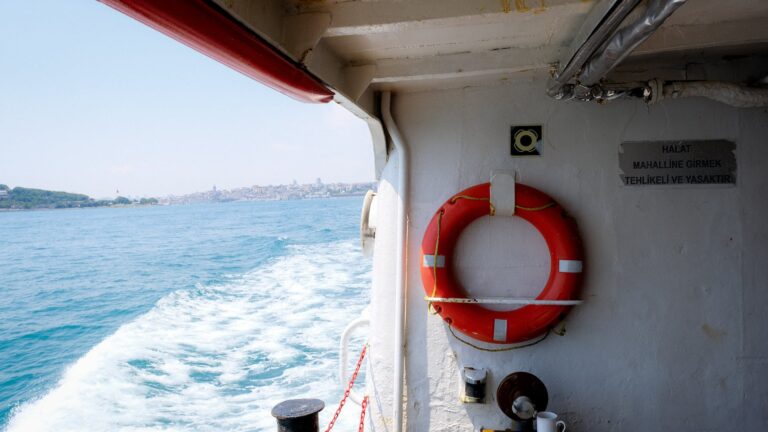Why is it called seaman?
- Introduction
- History of the Term “Seaman”
- What Does the Term “Seaman” Mean?
- Seaman vs. Officer
- The Role of a Seaman
- Qualifications Required to Be a Seaman
- Types of Seamen
- Career Paths for Seamen
- Salaries & Benefits of Being a Seaman
- The Future of Seamanship
- Conclusion
Why is it Called Seaman?
The term seaman has been used for centuries to refer to someone who works on board a ship, but where did this term come from? In this article, we’ll explore the history and usage of the word seaman and explain why it’s still used today to refer to sailors and marine personnel.
History of the Term “Seaman”
The word seaman originates from the Middle English word seman, which in turn comes from the Old English sæmanna (plural). It was first used in the 1400s to denote someone whose job is connected with ships on the sea, such as fishermen and sailors, and is similar in formation to Dutch zeeman, German Seemann, and Old Norse sjomaðr. It was also used to describe all ranks of maritime personnel below that of an officer, such as boatswains, sail makers, and deckhands.
What Does the Term “Seaman” Mean?
Today, the term seaman refers to an individual who works on board a ship or vessel at sea or in coastal waters. A seaman typically performs duties related to navigation, propulsion systems maintenance, cargo handling, mechanical repairs and other tasks associated with maintaining a vessel’s operations while at sea or in port.
Seaman vs Officer
The main difference between a seaman and an officer lies in their rank within a ship’s crew hierarchy; officers are typically responsible for managing crews while seamen are responsible for carrying out daily tasks related to operating a vessel or its equipment. Additionally, officers often have specialized academic qualifications related to maritime engineering or navigation whereas seamen typically require more practical skills such as welding or rigging experience gained through apprenticeship programs or at-sea training courses.
## The Role of a Seamen
A seaman’s primary responsibility is ensuring that all aspects of their vessel are running smoothly and safely while underway or in port; this includes keeping watch during navigation, inspecting equipment for signs of wear or damage, repairing any malfunctions that may occur while at sea, loading and unloading cargo as needed and performing any other duties that may arise during their shift on board the vessel. They must also be aware of weather conditions at all times and be able to act quickly if necessary in order to keep their crew safe during any hazardous situations that may arise due to changing weather patterns or unexpected events such as storms or rough seas.
## Qualifications Required To Be A Seamen
In order to work as a professional seaman you will need to obtain certain qualifications from your national maritime administration; these include both academic qualifications related to maritime engineering as well as practical skills such as welding or rigging which can be obtained through apprenticeship programs or at-sea training courses provided by accredited schools or training centres around the world. Additionally you will need valid certification from your national authority indicating that you have passed all relevant safety tests required for working on board vessels in their waters before being allowed onto any ships operating within them – such certifications are typically valid for 5 years before needing renewal again so it’s important for seafarers working internationally to stay up-to-date with current requirements wherever they go!
## Types Of Seamen
There are many different types of seamen working around the world today; these include deckhands who are responsible for basic maintenance tasks such as cleaning decks and painting superstructure; able seamen who are trained in navigation and piloting vessels; engine room hands who handle mechanical repairs; boatswains who oversee all deck operations; sail makers who repair sails; radio operators who send out distress signals when needed; cooks who prepare meals onboard ships; stewards who look after passengers’ needs while onboard ships; oceanographers who conduct scientific research related to oceans & seas; and finally electronic technicians who maintain electronic navigational equipment on board vessels such as radios & radar sets.
## Career Paths For Seamen
For those looking for a career path involving seafaring there are many different options available depending on one’s qualifications & experience level; sailors can start off working on smaller fishing boats before progressing onto larger merchant vessels where they can gain more specialized skills & experience which will help them progress further up the ranks & eventually become officers themselves if desired! Furthermore there is also plenty of opportunity for advancement within various companies & industries related directly or indirectly with marine operations – experienced seamen can find roles involving logistics operations management & even become captains themselves if they attain enough experience!
## Salaries & Benefits Of Being A Seamen
Salaries for seamen vary depending on rank & experience level but generally speaking they tend to be quite good compared with other jobs requiring similar levels of skill & dedication (e g engineering roles). Furthermore those working aboard larger vessels tend to receive additional benefits such as free accommodation onboard ship plus meals provided whilst out at sea – which can really help offset some costs associated with seafaring life! Additionally seafarers also enjoy generous leave allowances when not out at sea allowing them time off every few months/years depending on their employer’s policy – allowing them ample time ashore with friends & family every so often!
## The Future Of Seamanship
As technology continues to evolve so too does our reliance upon seafaring personnel – new advances in automation mean fewer manual tasks requiring hands-on supervision resulting in fewer opportunities available onboard traditional sailing vessels but increased demand aboard large merchant ships due to increased globalisation resulting in higher wages & better benefits packages than ever before! Additionally there has been an increase in demand across many areas related directly/indirectly with shipping industries – ranging from logistics operations management roles right up through executive level positions managing entire fleets – meaning now more than ever having experience within marine operations pays dividends both professionally & financially speaking!
## Conclusion
In conclusion then it’s clear why we still use terms like ‘seaman’ today even though technology has evolved significantly since its inception centuries ago – because despite advances we still rely heavily upon individuals skilled enough (and brave enough!) To take us into uncharted waters both literally & figuratively speaking! So next time you’re considering embarking upon your own nautical journey don’t forget our trusty sailors without whom none us would be able explore our oceans nor discover new lands…we owe them much respect indeed!







